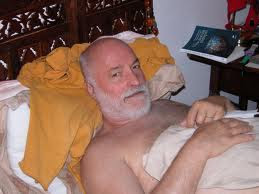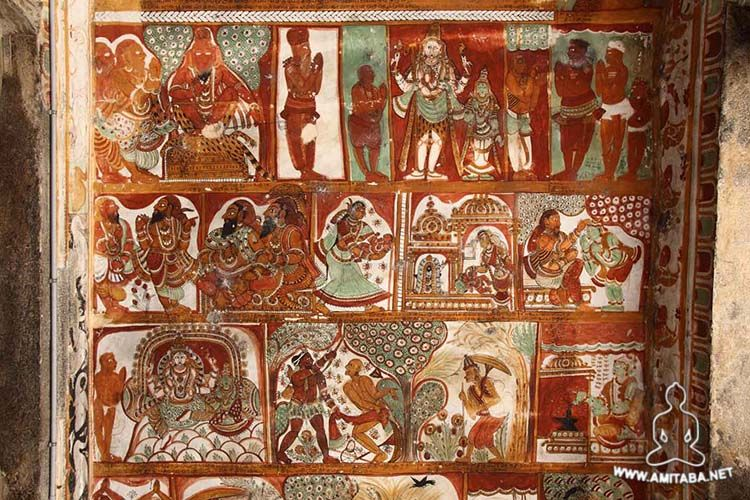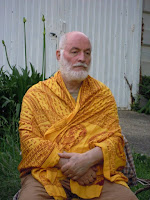Our life is linked to a series of circumstances over which we have no control but, as Nisargadatta said, we are an integral part of the total manifestation and total functioning and in no way can we be separated from it. Consequently, being consciousness in consciousness, we are able to recognize the energy flow in which we are immersed and ensure that our thoughts and actions are in tune with the quality of the space-time experienced. In this perpetual energetic reshuffling, we are like aimless navigators, or warriors – if you prefer – free to face the contingent without fear. “If you fear suffering – said a samurai – how can you fight?”
From the whole, the whole unravels before our eyes.
In the story of the Chinese zodiac, it is said that twelve animals presented themselves to the dying Buddha and each one obtained to embody the psychic characteristics that distinguish the three aspects of year, month and hour, based on the natural propensities of every living being. They are male and female and manifest their characteristics through the 5 fundamental phases of mutation: Earth (devotion), Metal (justice), Water (wisdom), Wood (ethics), Fire (customs).
The operation is more or less that of the kaleidoscope. Some colored elements and three internal mirrors. By turning the tube you get different compositions. Despite the smallness of the components the results can be infinite. This same concept (translated to the 5 elements and the three incarnated psychic aspects) shows the variegation of shades of color and movement through which the individual consciousness manifests itself (the form and the name). The consciousness of the self, which we call person, is an internal coordinator, adapted to the individuation, which appropriates the functions put in place.
We call it: I. This ‘subject’ (or internal assumer) is the individual identifying appearance in which we usually recognize ourselves. Strictly speaking, this “I” is itself the “consequence” of the energies set in motion by the various elements and the three incarnated archetypes, therefore it is inert (like a program), and it is an object in consciousness.
The three psycho-emotional archetypes, inseparable in their mixture, represent:
The sense of the self, ego = year of birth;
The intellect or intuition = time of birth;
The memory or experience = month of birth
Each of us manifests an exemplary form with three faces (designating our characteristics). The innate tendencies that are reflected in the mirror, perpetually changing, are the currents in which the self moves.
If we want to observe a small thing we must enlarge it through the microscope, but if we want to broaden the field of action we must detach ourselves as much as possible from the things around us, so as to perceive the overall sense. This race in circles towards self-knowledge is a dreamy wandering, an unanswered attention, solitude and silence, observation and contemplation, flowing clearly in changes, smiling in chasing the void.
And now a little story:
“Some of his followers asked the bandit Che: “Is there a road (Tao) for thieves too?” – “Oh, of course there is.. – Che replied – Holiness is intuiting where a hidden treasure lies, Heroism is entering the house first, Justice is leaving last, Wisdom is distinguishing the hit that can be attempted, Humanity means being equanimous in dividing the loot. In the world there has never existed a great thief who has not manifested these qualities”. (Chuang Tze)
Through the reflective capacities of the internal organ (antakharana) we are able to manifest psychophysical energies in response to those perceived outside of us. This response is automatic and inevitable, it is a natural law. To think of escaping its course is as absurd as thinking of changing the film while the film is being projected. But the internal attitude is important! In fact, the acceptance of one’s destiny dissolves the attachment to the useful and the useless that pushes us into the cycle of rebirths.
In ignorance we identify with the characters and consider ourselves authors and responsible for the game played, with gain and loss, the truth is that our ego, the individual consciousness, the person embodied by us, is only an image. The result of a distracted automatism and an illusory identification. We must understand this well if we do not want the mind to deceive us. Let us not fall into the delirium of the separate ego, even if the consciousness that animates it is true from now and we are already equipped with the initial capital for that "self-knowledge" it is absurd and ridiculous to think of "obtaining" it - strictly speaking it is not possible. It is already fully manifest here and now and therefore not achievable as another achievement. If we feel attracted by this "knowledge" it must be said that there is no course or explanation or experiment that can transmit it, it can only be recognized (awakened) by "sympathy" at the moment of maturation. Since it is not an "achievement" we continue to "go forward by instinct".
“Simple actors, until separated, then, once the duality is overcome, it no longer has any importance… The flower no longer has a name or shape, it is only a unique and unrepeatable flower in the garden of Consciousness”.
Paolo D’Arpini - Committee for Lay Spirituality
Testo Italiano:
L’intelletto o intuizione = ora di nascita;
La memoria o esperienza = mese di nascita





















